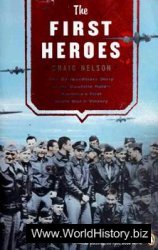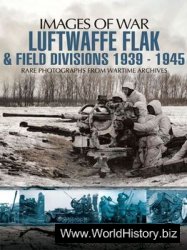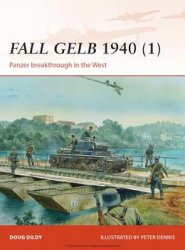By 1947, the split in Europe between East and West had
become a fact of life. At the end of World War II, the
United States had favored a quick end to its commitments
in Europe. But U.S. fears of Soviet aims caused the
United States to play an increasingly important role in
European affairs. In an article in Foreign Affairs in July
1947, George Kennan, a well-known U.S. diplomat with
much knowledge of Soviet affairs, advocated a policy of
containment against further aggressive Soviet moves.
Kennan favored the “adroit and vigilant application of
counter-force at a series of constantly shifting geographical
and political points, corresponding to the shifts and
maneuvers of Soviet policy.” After the Soviet blockade of
Berlin in 1948, containment of the Soviet Union became
formal U.S. policy.
The fate of Germany had become a source of heated
contention between East and West. Besides denazification
and the partitioning of Germany (and Berlin) into
four occupied zones, the Allied Powers had agreed on
little with regard to the conquered nation. Even denazification
proceeded differently in the various zones of
occupation. The Americans and British proceeded methodically—
the British had tried two million cases by
1948—while the Soviets went after major criminals and
allowed lesser officials to go free. The Soviet Union, hardest
hit by the war, took reparations from Germany in the
form of booty. The technology-starved Soviets dismantled
and removed to Russia 380 factories from the western
zones of Berlin before transferring their control to the
Western powers. By the summer of 1946, two hundred
chemical, paper, and textile factories in the East German
zone had likewise been shipped to the Soviet Union. At
the same time, the German Communist Party was reestablished
under the control of Walter Ulbricht (1893–
1973) and was soon in charge of the political reconstruction
of the Soviet zone in eastern Germany.
Although the foreign ministers of the four occupying
powers (the United States, the Soviet Union, Great Britain,
and France) kept meeting in an attempt to arrive at
a final peace treaty with Germany, they grew further and
further apart. At the same time, the British, French, and
Americans gradually began to merge their zones economically
and by February 1948 were making plans for unification
of these sectors and the formation of a national
government. The Soviet Union responded with a blockade
of West Berlin that prevented all traffic from entering
the city’s three western zones through Soviet-controlled
territory in East Germany. The Soviets hoped to force the
Western powers to stop the creation of a separate West
German state, which threatened Stalin’s plan to create a
reunified Germany that could eventually be placed under
Soviet domination.
The Western powers faced a dilemma. Direct military
confrontation seemed dangerous, and no one wished
to risk World War III. Therefore, an attempt to break
through the blockade with tanks and trucks was ruled
out. The solution was the Berlin Airlift: supplies for the
city’s inhabitants were brought in by plane. At its peak,
the airlift flew 13,000 tons of supplies daily into Berlin.
The Soviets, also not wanting war, did not interfere and
finally lifted the blockade in May 1949. The blockade
of Berlin had severely increased tensions between the
United States and the Soviet Union and confirmed the
separation of Germany into two states. The Federal Republic
of Germany (FRG) was formally created from the
three Western zones in September 1949, and a month
later, the separate German Democratic Republic (GDR)
was established in East Germany. Berlin remained a divided
city and the source of much contention between
East and West.
The search for security in the new world of the Cold
War also led to the formation of military alliances. The
NorthAtlantic Treaty Organization (NATO) was formed
in April 1949 when Belgium, Luxembourg, the Netherlands,
France, Britain, Italy, Denmark, Norway, Portugal,
and Iceland signed a treaty with the United States and
Canada (see Map 7.1). All the powers agreed to provide
mutual assistance if any one of them was attacked. A few
years later, West Germany and Turkey joined NATO.
The Eastern European states soon followed suit. In
1949, they formed the Council for Mutual Economic Assistance
(COMECON) for economic cooperation. Then,
in 1955, Albania, Bulgaria, Czechoslovakia, East Germany,
Hungary, Poland, Romania, and the Soviet Union
organized a formal military alliance, the Warsaw Pact.
Once again, Europe was tragically divided into hostile alliance
systems.
By the end of the 1950s, then, the dream of a stable
peace in Europe had been obliterated. There has been
considerable historical debate over who bears the most
responsibility for starting what would henceforth be
called the Cold War. In the 1950s, most scholars in the
West assumed that the bulk of the blame must fall on
the shoulders of Joseph Stalin, whose determination to
impose Soviet rule on the countries of Eastern Europe
snuffed out hopes for freedom and self-determination
there and aroused justifiable fears of Communist expansion
in the Western democracies. During the next decade,
however, a new school of revisionist historians—
influenced in part by aggressive U.S. policies to prevent a
Communist victory in Southeast Asia—began to argue
that the fault lay primarily in Washington, where President
Truman and his anti-Communist advisers abandoned
the precepts of Yalta and sought to encircle the Soviet
Union with a tier of pliant U.S. client states.
Both the United States and the Soviet Union took
steps at the end ofWorldWar II that were unwise or might
have been avoided. Both nations, however, were working
within a framework conditioned by the past. Ultimately,
the rivalry between the two superpowers stemmed from
their different historical perspectives and their irreconcil-
able political ambitions. Intense competition for political
and military supremacy had long been a regular feature of
Western civilization. The United States and the Soviet
Union were the heirs of that European tradition of power
politics, and it should not come as a surprise that two such
different systems would seek to extend their way of life to
the rest of the world. Because of its need to feel secure on
its western border, the Soviet Union was not prepared to
give up the advantages it had gained in Eastern Europe
from Germany’s defeat. But neither wereWestern leaders
prepared to accept without protest the establishment of a
system of Soviet satellites that not only threatened the security
of Western Europe but also deeply offended Western
sensibilities because of its blatant disregard of the
Western concept of human rights.
This does not necessarily mean that both sides bear
equal responsibility for starting the Cold War. Some revisionist
historians have claimed that the U.S. doctrine
of containment was a provocative action that aroused
Stalin’s suspicions and drove Moscow into a position of
hostility to the West. This charge lacks credibility. As information
from the Soviet archives and other sources has
become available, it is increasingly clear that Stalin’s suspicions
of the West were rooted in his Marxist-Leninist
worldview and long predated Washington’s enunciation
of the doctrine of containment. As his foreign minister,
Vyacheslav Molotov, once remarked, Soviet policy was
inherently aggressive and would be triggered whenever
the opportunity offered. Although Stalin apparently had
no master plan to advance Soviet power into Western Europe,
he was probably prepared to make every effort to do
so once the next revolutionary wave appeared on the
horizon. Western leaders were fully justified in reacting
to this possibility by strengthening their own lines of
defense. On the other hand, it has been argued—by no
less than George Kennan himself—that in deciding to
respond to the Soviet challenge in a primarily military
manner, Western leaders overreacted to the situation and
virtually guaranteed that the Cold War would be transformed
into an arms race that could quite conceivably result
in a new and uniquely destructive war.




 World History
World History









